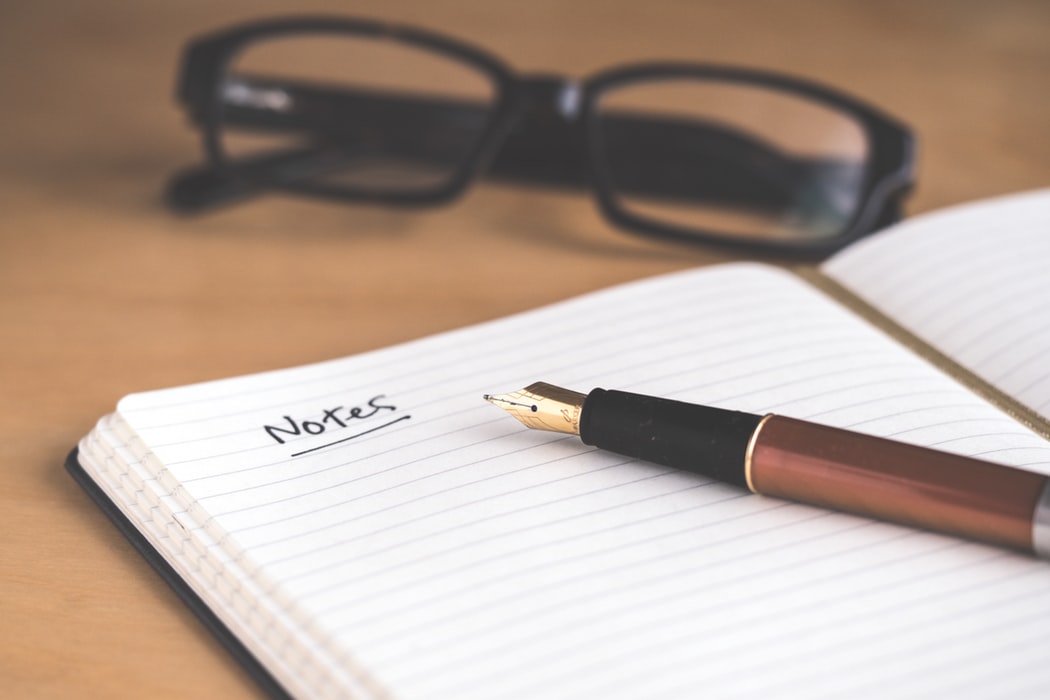Is your busy schedule stopping you from learning French? Today having a hobby such as learning a language may seem quite complicated to do. With your busy work schedule, family, everyday tasks, you might ask yourself “how can I learn French?”.
Do you remember how you used to learn a language back in school? You had to sit on a table for hours listening to the teacher talking about the extremely boring and complex grammar rules that you’d never remember. Then, you were expected to make no mistakes, using the right tense, the correct words (that you didn’t have) while all you’ve been learning was the greetings and introducing yourself.
Well, I may be exaggerating a tad but you get the idea. This method was neither useful nor efficient. You still might have this very same idea about learning a language and that’s one of the reasons why you are reluctant to make time to learn French.
I assure you, you don’t need hours to learn a language. You don’t even necessarily need a workbook nor a place to study.
In this blog post, I am going to talk about 8 tips that will help you fit French learning in your busy schedule and give you ideas to structure your learning process.
 5 to 30 minutes a day is enough!
5 to 30 minutes a day is enough!
As I was saying, you don’t need to study for hours.
5 to 30 minutes a day can be beneficial if you use this time wisely. But what can you do in 5 minutes to improve your French? Here are some ideas!
Read an article
Here are some suggestions ;
Le Monde (center-left)
Le monde, a daily afternoon newspaper founded by Hubert Beuve-Méry, is one of the most important and widely respected newspapers in the world. You can read most of the articles for free on their website.
Le Figaro (center-right)
Le Figaro is the oldest national daily in France and is one of the three French newspapers of record. (along with Le Monde and Libération). Like Le Monde, you can also read a big part of the article for free!
Scoop.it: Pick articles for your level
This blog lists a lot of random articles. However, before each article you have the required level to understand it. You will, for example, see A1, A2, B1, B2, C1 and C2 levels which are the levels provided by the CEFR (The Common European Framework of Reference for Languages: Learning, Teaching, Assessment).
To make it short, we can say;
A1-A2 : beginner levels
B1-B1 : intermediate levels
C1-C2: advanced levels
Listen to or read the news headlines
On this website you can see the headlines, read the articles, listen to the radio or even watch the channel!
We all use Google’s different platforms. If you like using Google News you can change the language into French to check the headlines. It can be a great way to practice your French and know what’s happening in France.
Listen to Charles Aznavour’s “Et pourtant” song
TWICE!
or any other song of course…
Review the words/expressions you’ve been learning and so on
In 5-10 minutes you can check your vocabulary sheet, notes, flashcards to review them.
Now, if you have 30 minutes to spare imagine what you can do! Use your time in commute, traffic, during your jogging. Listen to the radio, to a podcast, you can watch your favourite sitcom/series in French or better you can watch a French one! You can practice your French anytime, anywhere!
 Have everyday conversations
Have everyday conversations
If you’re lucky enough to live in a French-speaking country, you already have plenty of opportunities to use your French! It can be in a bakery, restaurant, a chitchat with your colleagues or your neighbours etc.
You might think that’s an inefficient way to practice French as you’re repeating the same conversations over again. However, as in any other skill, repetition is very important when learning a language.
Repetition helps to improve speed, increases confidence, and strengthens the connections in the brain that help you learn better. So, having short, everyday conversations with French speakers would always be beneficial!
Think in French
For those who don’t live in a French-speaking country, practising the language might be more challenging. But it’s not impossible! You may have friends, family members or colleagues learning French as well. Talking with them in French wouldn’t be weird! Quite the opposite, this can benefit both of you as you can learn new things from each other and discuss more the language!
However, if you don’t have anyone to practise with, why don’t you try talking with yourself?
Whenever I suggest this idea to my students, I first have some awkward laughs but then once they think about it, they realise how brilliant it is.
Think first, speak later
Do you ever wonder what’s happening in the brain of a polyglot? They can talk in one language, think in another at the same time. They can go from one language to another within seconds without thinking too much about it. How is that possible? Is there something more in their brain that you don’t? The answer is no! It’s the habit of joggling with different languages that make them able to speak and learn more languages.
Now, let’s see what happens when you try to speak French.
On a Monday morning, your French colleague Pierre enters the room and asks you how was your weekend in a quiet fast pace. Well, it’s Pierre he doesn’t enunciate well and, let’s not forget it’s still Monday morning.
Here you are trying to first understand this very simple question and answer it. You’ve probably heard this question a hundred times but your brain doesn’t seem to cooperate well. You have about 5 seconds to answer and, here you are stressing, sweating, mumbling something but you can’t seem to structure a proper sentence.
Finally, you end up saying “bon”. Pierre leaves the room and you realise you should’ve said “bien” and not “bon” and a few seconds later you come up with a very well-structured sentence in an empty room.
But, why?
What happens there is not that your brain doesn’t cooperate, it’s simply because your brain hasn’t been used to it yet. A lot of people want to speak a new language but they forget that first, they have to think in it. When you rush this process you end up trying to speak and think at the same time. Your brain can’t do this if it’s not used to it.
So, that is why polyglots can joggle with different languages at the same time because they have trained their brain to do so. Thankfully, this is something that you can practice as well and get better at it on your own.
But, how?
You can start by commenting on things around you in French, for example, it can be describing persons or objects. Then, you can tell yourself what you are doing or what will you be doing or even what you have done. You can have short conversations with yourself as if you were speaking with your colleague Pierre. While doing that, you will realise what words you’re missing, or what phrases you should practice more. This will then help you to structure your whole learning process.
So no, you won’t sound stupid or weird trying to talk to yourself in another language. Give it a try starting from now!
 Take notes
Take notes
Taking notes is inevitable when you learn a new language. You’ve probably already noticed how easily you forget the words you want to learn and this is very normal. However, if you write them down on a notebook you can always revise them whenever you want!
Taking notes can also remind you of some simple grammar rules, for example, let’s say you’ve seen the word “enseignant” (teacher) and want to learn it. You can write it down on your notebook with some useful notes as in the example below :
- Un(e) enseignant(e) = a teacher (noun) => plural “des enseignants / enseignantes”
- Enseigner = to teach (verb / 1st group)
In a sentence: Mon enseignante enseigne le français depuis 2016 (my teacher teaches French since 2016)
Not only you learn a new word but you also see its feminine, plural forms which is very important in French as nouns can be both in masculine and feminine and most of the time, with different endings. The noun “enseignant” comes also from the verb “enseigner” (to teach) so you can write down the other derivations, synonyms to learn more words! Finally, I strongly recommend to end it with a sentence using those words. Creating a context will help you memorise it better.
Check out my blog about 10 ways to learn French vocabulary for more ideas to learn new words!
If you don’t like using notebooks, you can always use your phone to take notes which can be a real time-saver!
Use apps
Talking about phones… Nowadays smartphones are a great tool to learn/practice a language. With some useful apps, you can learn and have fun at the same time.
I’m sure you all know about Duolingo. Even though I don’t 100% agree with their so-called “world’s best way to learn a language” it remains today a great app to learn new phrases and words, especially for beginners. There are some other apps that you can use such as “Mosalingua” or “Busuu”.
For more resources check my blog post about The best resources to learn French
 Follow French influencers!
Follow French influencers!
Whether is just to share photos with our friends/family or to tell our opinions about anything or even just to follow the newest trends, Social Media has become an important part of our lives.
If you can find time to check social media, you may want to follow some French “influencers” to practice and learn French by reading their posts or watching their videos! Here are some suggestions :
Cyprien
He is one of the most popular French YouTuber today. He mostly makes humorous videos and most of them even have French or English subtitles; that’d be a great way to get into “French humour”. I don’t guarantee if you’ll like it, though!
Sananas
If you’re into fashion/beauty tips and videos, I’d recommend you Sananas. She’s a famous French blogger/YouTuber. She even does collab. with a lot of brands like Sephora.
Squeezie
He is undoubtedly the most popular French YouTuber. He’s been publishing videos since 2011. He makes a wide range of videos but most of them are “let’s play”, humorous or reaction videos.
You can also follow Bla Bla French on Facebook and Instagram for more content in French!
Make it easy
Learning a language shouldn’t be an arduous task. Especially when you’re too busy to dedicate a significant time in learning. You are in control of your learning so make it easy, make it fun!
Learn things you like and learn through the things you like. Music, films, books. If you have fun then the learning will be more joyful as well and help you learn easily.
 Take lessons
Take lessons
All the tips above are things you can do to practice/learn French on your own. However, at some point, it can be hard to evaluate yourself. Most of the time, we tend to not see the progress we’re making. We may underestimate ourselves, especially when learning a language or we may not see what we need to improve to continue learning. That is exactly when you need one more thing in your learning process; a French tutor!
With a qualified, experienced teacher you can see progress in no time. You can get more confident and learn better. Moreover, you don’t even need having 3-4 hours classes a week to do these things I’ve listed, only one hour a week is enough!
On Bla Bla French you can schedule classes with me!
I prepare every lesson to meet your goals, needs and interests to make sure you learn French most efficiently while still having fun learning it. For more information click here.
Do you still have questions or doubts? Book a free trial session with me now to answer all of your questions!






